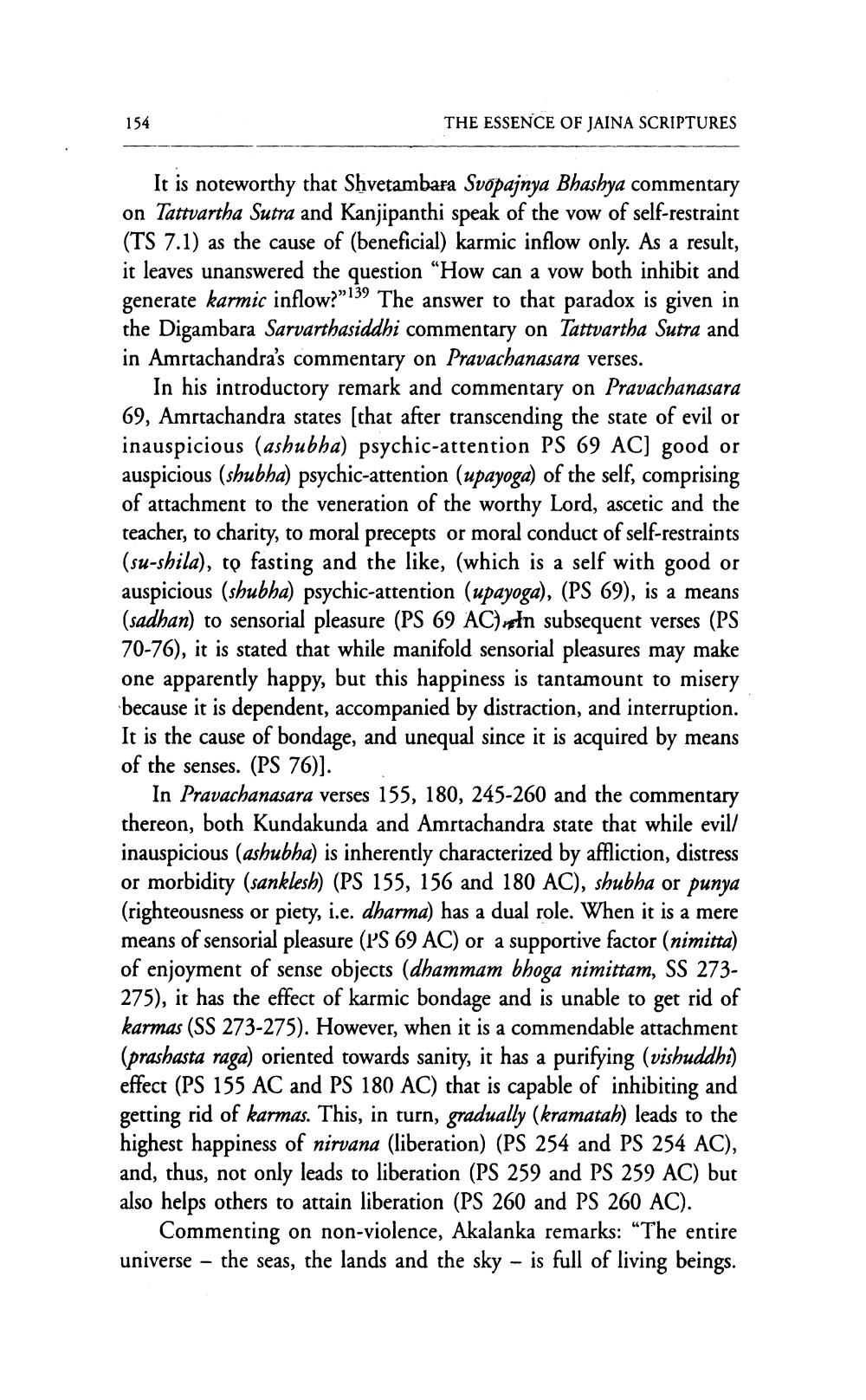________________
154
THE ESSENCE OF JAINA SCRIPTURES
It is noteworthy that Shvetambara Svopajnya Bhashya commentary on Tattvartha Sutra and Kanjipanthi speak of the vow of self-restraint (TS 7.1) as the cause of (beneficial) karmic inflow only. As a result, it leaves unanswered the question “How can a vow both inhibit and generate karmic inflow?"139 The answer to that paradox is given in the Digambara Sarvarthasiddhi commentary on Tattvartha Sutra and in Amrtachandra's commentary on Pravachanasara verses.
In his introductory remark and commentary on Pravachanasara 69, Amrtachandra states that after transcending the state of evil or inauspicious (ashubha) psychic-attention PS 69 AC) good or auspicious (shubha) psychic-attention (upayoga) of the self, comprising of attachment to the veneration of the worthy Lord, ascetic and the teacher, to charity, to moral precepts or moral conduct of self-restraints (su-shila), to fasting and the like, (which is a self with good or auspicious (shubha) psychic-attention (upayoga), (PS 69), is a means (sadhan) to sensorial pleasure (PS 69 AC) rn subsequent verses (PS 70-76), it is stated that while manifold sensorial pleasures may make one apparently happy, but this happiness is tantamount to misery because it is dependent, accompanied by distraction, and interruption. It is the cause of bondage, and unequal since it is acquired by means of the senses. (PS 76)].
In Pravachanasara verses 155, 180, 245-260 and the commentary thereon, both Kundakunda and Amrtachandra state that while evil/ inauspicious (ashubha) is inherently characterized by affliction, distress or morbidity (sanklesh) (PS 155, 156 and 180 AC), shubha or punya (righteousness or piety, i.e. dharma) has a dual role. When it is a mere means of sensorial pleasure (PS 69 AC) or a supportive factor (nimitta) of enjoyment of sense objects (dhammam bhoga nimittam, SS 273275), it has the effect of karmic bondage and is unable to get rid of karmas (SS 273-275). However, when it is a commendable attachment (prashasta raga) oriented towards sanity, it has a purifying (vishuddhi) effect (PS 155 AC and PS 180 AC) that is capable of inhibiting and getting rid of karmas. This, in turn, gradually (kramatah) leads to the highest happiness of nirvana (liberation) (PS 254 and PS 254 AC), and, thus, not only leads to liberation (PS 259 and PS 259 AC) but also helps others to attain liberation (PS 260 and PS 260 AC).
Commenting on non-violence, Akalanka remarks: “The entire universe - the seas, the lands and the sky - is full of living beings.




